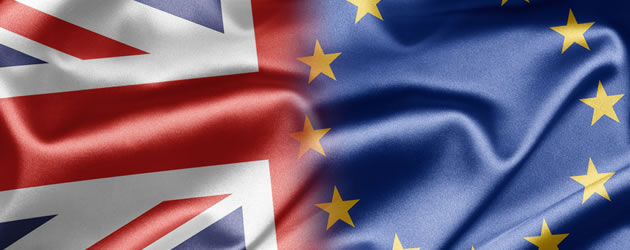With anger against the European Union growing by the day and with the popularity of anti-EU political party UKIP on the rise, calls for an in-out referendum on whether the UK should remain a part of the EU are growing louder and louder.
In the first part of this feature, we looked at some of the benefits afforded to the UK by being a part of the EU. Now we look at some of the reasons why the UK should leave.
Economic Growth, Financial Crisis, Recession
The Eurozone economy has been in a state of near perpetual crisis since the global financial crash in 2008. Fortunately, for the UK not adopting the single currency meant the nation was able to ride out the worst of the global slowdown. Today the UK is on track to overtake France as Europe’s second largest economy and some economists are forecasting that it will become the largest by 2020. Trade with nations outside of the EU has soared in the past few years. As Europe flounders, emerging markets are becoming more profitable. The former Commonwealth nations of Canada, India, and Australia etc, are quickly becoming lucrative places for the UK to do business with than the EU.
UK businesses often complain about the amount of Red tape foisted upon them by directives issued by the European Parliament. Leaving the EU would reduce this and allow businesses to invest their cash elsewhere and give them the ability to hire more workers if needed, which in turn would bolster the domestic economy.
Saving Wasted Pounds (GBP)
The UK is one of the largest contributors to the EU and on average gives away £50 million per day. Figures released by the Office for National Statistics showed that the UK’s contributions increased by 5.7% in 2013 to a record high of £18.5 billion around €20 billion. The UK gives the EU far more than it receives. In 2013, the UK received £8.1 billion back meaning that the UK’s net contribution is £10.3 billion.
With the argument brewing over a surprise demand for an extra £1.7 billion, it is understandable why the British think they are getting a raw deal. The money that would be saved by leaving the EU could be used to shore up sectors, which are struggling in the UK, such as education and healthcare.
The Euro (EUR)
The single currency was flawed from the start, an opinion backed up by the fact that the 18-member Eurozone has been in a state of virtual crisis for years. The members of the single currency bloc are not compatible. How are the relative economic minnows of Greece, Malta and Cyprus supposed to compete with the behemoths of Germany and France? This imbalance of economies led to the Euro crisis; Unemployment in the currency bloc remains dangerously high with millions of people out of work, economic growth has stalled and a number of countries remain stuck in recession.
The region is now facing a new threat in the form of deflation and fears are rising that the Eurozone is sliding towards a triple dip recession. The issues with the Euro have increased calls for closer political union on the continent something that most Brits did not vote for back in 1975 when deciding to join the then European Economic Community, which they believed, was simply a free trade agreement.
Democracy
The peoples of Europe do get the chance to vote for someone to represent their region in the European Union Parliament but the European Commission…well that’s a completely different story. The people who create the laws and run the EU are not elected by the people but instead they are chosen from within and approved by the parliament.
Shaking off Detrimental Laws
The number of laws created in Brussels and imposed upon the UK is difficult to ascertain as figures vary wildly from 10% to as much as 70%. The House of Commons Library concluded in 2010 that the influence from EU regulations accounts for around 53%. Some of these laws have proven to be detrimental to UK business and industry. By leaving the EU, the UK could counter those regulations and benefit from their disposal.
Freedom to look to the Wider World
Unlike the other member nations in the EU, the UK still has strong connections with its imperial past. The Commonwealth of Nations is comprised of 53 former colonies of the British Empire and is spread throughout the world.
Leaving the EU and re-forging ties with the Commonwealth would increase trade with a market of 2.2 billion people. The EU has a population of 600 million in comparison. The Commonwealth in effect has the potential to dwarf the EU over the coming years in terms of trade and could become the largest trading bloc in the world.
As Winston Churchill said on 11 May 1953 – ‘We are with Europe but not of it; we are linked but not compromised. We are associated but not absorbed. If Britain must choose between Europe and the open sea, she must always choose the open sea,’
The debate on whether the UK should stay or go is likely to intensify in the run up to the 2015 general election and will be a major issue. As a result, the Pound Sterling exchange rate will likely see movement in the run up to the vote depending on which way the polls go.

